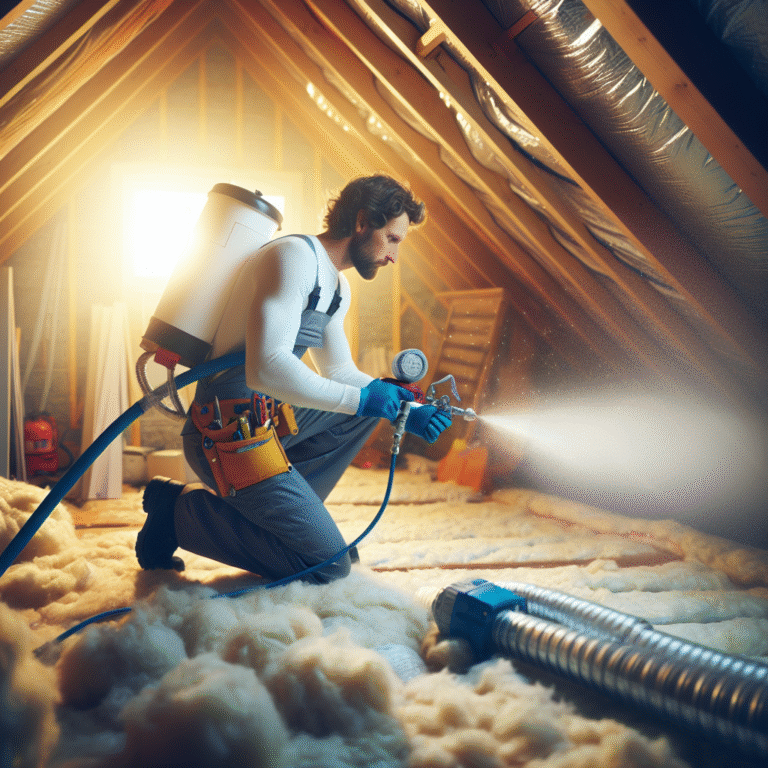The Ultimate Guide to Attic Insulation Services: Boost Your Home’s Energy Efficiency
Table of Contents
- Introduction
- What is Attic Insulation?
- Benefits of Attic Insulation
- Types of Attic Insulation
- Installation Process
- Maintenance Tips
- FAQ Section
- Conclusion & CTA
Introduction
Attic insulation services are crucial for maintaining an energy-efficient home. Proper insulation in the attic not only keeps your home warmer in the winter and cooler in the summer but also helps in significantly reducing energy bills by minimizing energy waste.
What is Attic Insulation?
Attic insulation involves the application of insulating materials in the attic space, which acts as a barrier to heat flow and is essential for keeping your home’s temperature comfortable and stable.
Benefits of Attic Insulation
- Enhanced thermal comfort all year-round
- Significant reduction in energy costs
- Improved indoor air quality
- Increase in home value
Types of Attic Insulation
Different types of attic insulation cater to varying budgets, climatic conditions, and installation preferences. Key types include fiberglass batts, loose-fill fiberglass, cellulose, and spray foam.
Installation Process
Step 1: Evaluation
Professional assessors evaluate your current insulation status and attic condition to determine the need and the best type of insulation.
Step 2: Preparation
Crews prepare the attic space by cleaning and, if necessary, removing old insulation. Proper ventilation routes are also established to ensure air flow.
Step 3: Installation
Technicians meticulously install the chosen insulation, ensuring that no gaps are left that might lead to heat leaks.
Maintenance Tips
Regular checking for pests, mold, and dampness is crucial in maintaining the effectiveness and longevity of your attic insulation.
FAQ Section
Q: Why is attic insulation important for energy saving?
A: Attic insulation reduces the heat exchange between your home and the outside environment, leading to less heating and cooling energy being required, which effectively lowers energy costs.
Q: What is the best type of insulation for attics?
A: The best type depends on your specific needs, but spray foam often offers comprehensive coverage and excellent thermal resistance.
Q: How often should attic insulation be replaced?
A: Insulation can last 20 to 30 years, but it may need replacement sooner if damaged by moisture or pests.




